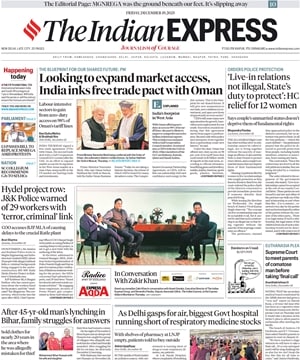Cash-starved Gaza struggles to rebuild as banks reopen without money: ‘You just do paperwork and leave’
More than two weeks after Israel and Hamas agreed to a ceasefire, Gaza’s financial system remains paralyzed
 With few coins or notes in circulation, the economy is sliding into barter: cigarettes for bread, fuel for medicine. (Photo: AP)
With few coins or notes in circulation, the economy is sliding into barter: cigarettes for bread, fuel for medicine. (Photo: AP) The guns have fallen silent in Gaza, but the peace has brought little relief for many Palestinians now trapped in a different kind of siege — one of empty banks, cash shortages, and soaring prices.
More than two weeks after Israel and Hamas agreed to a ceasefire, Gaza’s financial system remains paralysed. Banks, many of which were damaged or destroyed during the two-year war, reopened on October 16 for the first time since the truce — but only on paper.
“There is no money, liquidity at the bank,” said Wael Abu Fares, 61, a father of six, standing outside the Bank of Palestine, Reuters reported. “You just come, do some paperwork, and leave.”
Banks reopen, but the cash is gone
For most Gazans, life revolves around cash. Food stalls, transport fares, and electricity bills all rely on physical currency. But with Israel still blocking the transfer of banknotes — part of its wider restrictions on goods since Hamas’s October 2023 attacks — even basic transactions have become impossible.
“Banks are open, the air conditioning is on, but they are mostly doing electronic business,” Gaza-based economist Mohammad Abu Jayyab told Reuters. “No deposits, no withdrawals of cash.”
Those desperate for cash are turning to black-market “money changers” who charge exorbitant fees. “Some greedy merchants give people cash for a huge fee — 20 per cent, sometimes even 40 per cent,” Abu Jayyab added.
At bank branches across Gaza City and Rafah, long lines form each morning. By afternoon, most people leave with nothing.
“You spend two or three days going back and forth,” Reuters quoted 45-year-old mother-of-seven Iman al-Ja’bari as saying. “And in the end, you only get 400 or 500 shekels ($123–$153). What can that buy now, with prices so high?”
Inflation has surged as shortages bite, leaving even simple staples out of reach. For some, survival now depends on creative coping.
Mending money to make ends meet
As per Reuters, 40-year-old Manal al-Saidi, carefully tapes together torn, dirty banknotes for a small fee. “I make 20 or 30 shekels a day,” she said. “Enough for bread, beans, maybe falafel. Vegetables? No — that’s a luxury.”
Others rely on mobile banking apps to pay for small items like eggs or sugar, but sellers often add service fees. With few coins or notes in circulation, the economy is sliding into barter: cigarettes for bread, fuel for medicine.
The issue of cash supplies was notably absent from US President Donald Trump’s 20-point peace plan for Gaza, which deferred reconstruction and security details for later talks.
COGAT, the Israeli military body overseeing aid into Gaza, has not commented on when — or if — cash transfers will resume.






